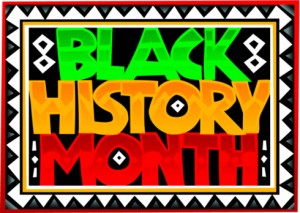February is Black History Month

During the month of February, your child may be spending time in school learning about Martin Luther King, Jr., Rosa Parks, George Washington Carver, and other notable African Americans that have impacted our country’s history. You can help cement your child’s understanding of the issues of racism in the United States by talking at home about some of these Americans as well as the issues that they faced. Here are some activities that you may find helpful and fun to do with your child:
- Read through or listen to Martin Luther King, Jr.’s speech, “I Have a Dream,” with your child. If your child is young, focus on these lines: “I have a dream that my four little children will one day live in a nation where they will not be judged by the color of their skin but by the content of their character.” Tell your child about when people used to be judged by the color of their skin, and open up a dialogue about whether he has seen or experienced this at school or in the neighborhood. Even very young children can understand that people come in different colors, and older children can have a more in-depth discussion about racism.
- Learn about holidays that are commonly celebrated by or having to do with the Black community. These holidays may include Martin Luther King Jr. Day, Kwanzaa, and Juneteenth. Talk about why each of these is significant. If your kids want to, you could plan on observing or celebrating them as they come up, or you might choose to have a celebration during the month of February.
- Learn about well-known African-Americans representing a variety of careers, including sports professionals, novelists, actors, and musicians. Read an age-appropriate book written by a Black author, or listen to music composed or performed by a Black musical artist.
- Learn about the Underground Railroad or the Civil Rights movement. Talk to your child’s teacher to see what the class is learning or will be learning this year about these topics if they are in the curriculum. If they aren’t, ask your children’s librarian to recommend level-appropriate books on these topics. They are vital parts of American history.
While racism may not seem as pervasive or widespread now as it was when we were children or when our parents were growing up, it’s important for today’s children to learn about these issues to avoid allowing discrimination, racism, and hate to become accepted in the near and distant future. Whether your family is Black or not, take some time this month to talk about Black History Month and to teach your children about acceptance and diversity.
Do you have any fun or meaningful ideas for observing Black History Month?









my kids are learning about black history month thanks for the article